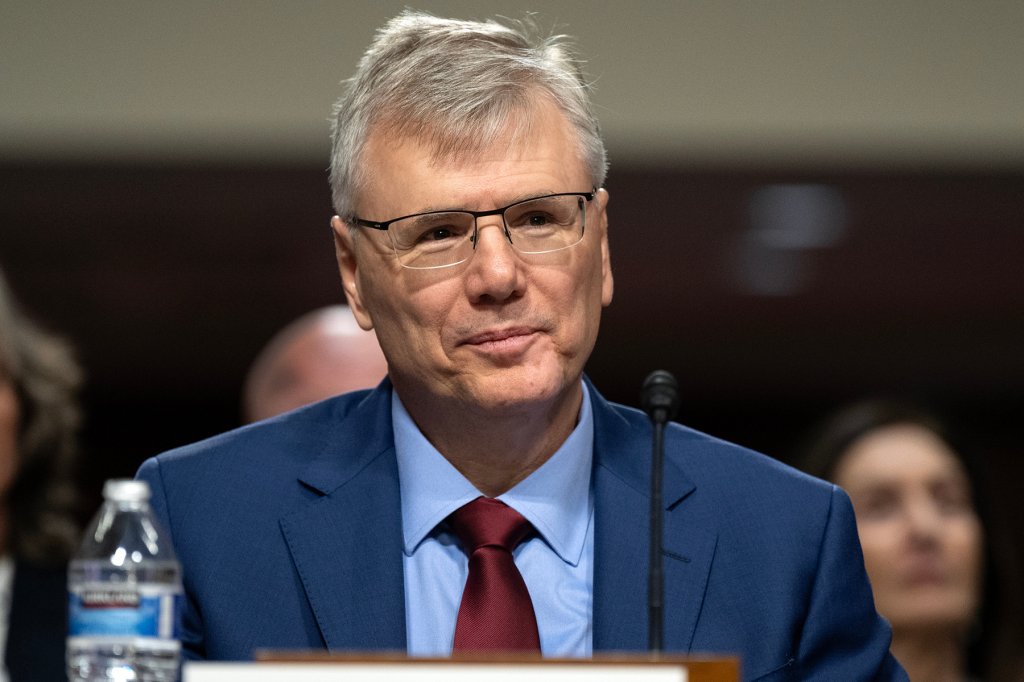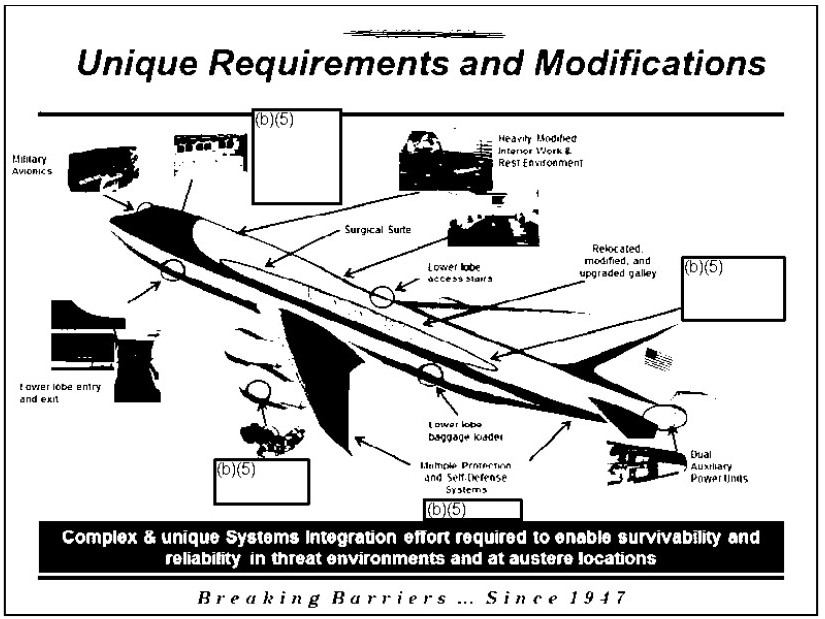The U.S. Air Force is now actively exploring what it would take to turn an already heavily-modified 747-8i airliner from Qatar into a platform that can meet extremely stringent requirements to serve in the Air Force One role. President Donald Trump’s administration confirmed earlier this month that it has been in talks with Qatari authorities about receiving the jet ostensibly as a gift. TWZ has already highlighted serious questions about the feasibility of converting the Qatari jet into an ‘interim’ Air Force One, especially before the end of Trump’s second term in 2029, as you can read more about here.
Secretary of the Air Force Troy Meink, who was sworn in just on May 16, and Chief of Staff of the U.S. Air Force Gen. David Allvin answered questions about the potential of turning the Qatari 747-8i into an Air Force One presidential aircraft from members of the Senate Armed Services Committee today.

“As you know, any platform used for presidential travel must be fully secure, survivable – and this is the important part – capable of supporting uninterrupted command and control under the most demanding conditions, including in the event of a nuclear crisis,” Sen. Tammy Duckworth, an Illinois Democrat, said in the lead-in to a question for Meink and Allvin about the proposed conversion. “This isn’t just about ensuring presidential protection, though that is very important. This is about our national security and protecting all Americans from the dangers posed if the President’s sensitive communications are intercepted, or if he is out of contact, God forbid, with our nation’s military during a crisis.”
“Secretary Meink, General Allvin, do you concur that the upgrades required for a foreign-provided plane to meet the operational security standards of Air Force One would be significant?” she asked.
“So, the Secretary of Defense [Pete Hegseth] has directed the Air Force to basically start planning to modify the aircraft,” Meink said in response to a question from Duckworth. “We will have to look at all of those issues you just addressed in those modifications.”
Allvin responded that he was in alignment with Meink’s position.
“Any civilian aircraft will take significant modifications to” turn it into a suitable Air Force One, Meink said after further questioning. “As I said, we’re asked, based on [the Defense] Secretary’s direction, we are postured, and we’re off looking at that right now, what it’s going to take for that particular aircraft.”

It is worth noting that Boeing is already in the process of converting two other 747-8is originally built as commercial airliners into new VC-25B Air Force One aircraft. However, those aircraft were never delivered to their intended customer and are not as heavily modified to start as the Qatari 747-8i in question. Boeing stopped producing 747s entirely in 2022.
Work on the VC-25Bs has been repeatedly delayed, which has been a key contributing factor in the emergence of the general idea of an ‘interim’ Air Force One since Trump took office in January.
Duckworth also raised concerns “that requirements have been loosened” to try to accelerate work on VC-25Bs. Meink said he was unaware of any such changes to the Air Force One requirements, but noted he has only been in his current post since last week. There are certainly differences in the requirements for the VC-25Bs compared to the existing VC-25A Air Force One jets, which are based on older 747-200 aircraft. Most notably, the replacement presidential planes will not be able to refuel in flight, at least as far as is currently known, something that was previously seen as a vital feature, especially in the event of a severe contingency.

“Do I have your commitment that you would advise the President not to reduce any requirements that will lower operational security for any aircraft to be used as Air Force One?” Duckworth asked Meink.
“I will be quite clear and discuss that with Secretary [of Defense], up to the President if necessary, if we feel there’s any threats that we are unable to address,” Meink said.
As TWZ has already noted, converting any aircraft into one that is secure enough to provide safe transport for the President of the United States, as well as allow for constant communication, including if they need to order a nuclear strike, is an extremely complex process. The aircraft has to be physically hardened inside and out against a plethora of threats, from the electromagnetic pulse of a nuclear weapon going off to incoming surface-to-air missiles to enemy intelligence-gathering efforts. This, in turn, requires significant modifications right down to the aircraft’s core structure. As is highlighted by the tight controls around sourcing spares for the existing VC-25As, there are specific processes around vetting individual parts to protect against espionage and sabotage.

There is the possibility that the Qatari 747-8i could end up being used as a source of spare parts for the future VC-25Bs, as well as the 747-based E-4C Survivable Airborne Operations Center (SAOC) strategic command post aircraft the Air Force is also acquiring.
Whether the Qatari ‘gift’ of the 747-8i to the Trump administration even goes through in the end remains to be seen, given a host of additional legal and ethical hurdles and concerns. At the Senate Armed Services Committee hearing just today, Elissa Slotkin, a Michigan Democrat, asked Meink and Allvin about whether they were aware of a request from Qatar to buy F-35 Joint Strike Fighters and implied the possibility of a quid pro quo exchange. Meink took the question for the record to respond to later.
CNN did also report yesterday, citing anonymous sources, that Trump’s administration had reached out to Qatar first about acquiring the 747-8i before the government in Doha had proposed offering it as a gift.
Whatever the case, the Air Force is now at least looking into what specifically would be needed to turn the Qatari royal jet into a new Air Force One.
Contact the author: [email protected]
